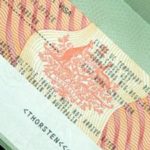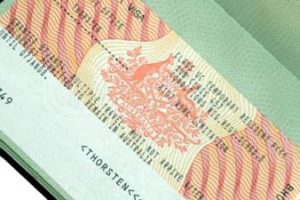
A ring accused of helping people from the Middle East obtain student visas by taking their proficiency exams and classes has exposed vulnerability in the nation’s security tracking system for foreigners who attend U.S. schools, experts say.
The bust unsettled immigration authorities and federal lawmakers who had implemented the sophisticated Foreign Student and Exchange Visitor Information System after learning one of the Sept. 11 hijackers had entered the U.S. on a student visa.
Immigration officials have broken up similar fraud rings in recent months in Miami; Orange County, Calif.; Atlanta; and the Los Angeles area. All involved Korean students.
The scrutiny of foreign students once they arrive on a U.S. campus is a “serious chink in the armor” of the system, said Janice Kephart, former counsel to the 9/11 Commission and the national security policy director at the Washington, D.C.-based Center for Immigration Studies.
“Vulnerability with universities remains a top issue,” she said. “It’s a clean way to come into the U.S.”
Federal prosecutors charged a California man March 8 with operating a ring of illegal test-takers who helped dozens of Middle Eastern nationals fraudulently obtain and keep U.S. student visas in exchange for tens of thousands of dollars.
Authorities allege Eamonn Higgins, 46, and about a dozen associates helped the students stay current on their immigration paperwork by attending classes in their name, writing term papers, and taking finals with guaranteed grades of ‘B’ or above.
The case also alarmed Rep. Gus M. Bilirakis, a Florida Republican who became interested in the student visa tracking system after a 2007 case at the University of South Florida.
Bilirakis, a ranking member the House homeland security oversight and investigations subcommittee, is sponsoring a bill that would require in-person interviews of foreign students every 30 days during the school year and every 60 days during nonacademic periods.
“Obviously this process that we set up is not working, and we have to find a better way,” he said. “They have to be here for the right reasons, going to school; otherwise they should be deported.”
Officials with U.S. Immigration and Customs Enforcement have not suggested the California ring was linked to any terrorism. Authorities have not ruled out further arrests in the ongoing investigation, said Virginia Kice, an ICE spokeswoman.
Authorities said professional test-takers allegedly used doctored driver’s licenses to gain entry to exams, including a language proficiency test that foreign students from non-English speaking countries must pass to qualify for an F-1 student visa.
Ten schools—seven community colleges and three California State University campuses—were affected.
In one instance, Higgins collected $34,000 to take a full course load for a Saudi Arabian student named Mohammed Ali Alnuaim, and several of his friends then haggled with Alnuaim over payments by eMail, according to court documents.
Prosecutors allege that some of the clients traveled to the Middle East multiple times and gained re-entry to the U.S. by applying for a student visa and registering to study at a different college.
Six of the students have been charged with conspiracy to commit visa fraud. Ten more have been placed in deportation proceedings, and immigration officials are searching for more than 30 more still believed to be in the U.S.
Authorities believe Higgins might have helped hundreds of students between 2002 and 2009 and have evidence linking him to 119 names, said Debra Parker, acting deputy special agent in charge for U.S. Immigration and Customs Enforcement in Los Angeles.
The extent of the investigation raises critical questions about how much responsibility colleges should bear in confirming the identities of foreign students, education experts said.
Universities have resisted taking on too much responsibility for immigration enforcement in the past, in part because of privacy issues and because many schools have limited resources or training for such work.
“This is a constant arms race,” said Stewart Baker, former undersecretary for policy with the Department of Homeland Security. “The DHS will have to make some tough decisions about how much more responsibility for performing identity checks they want to place on universities, which have been pretty resistant to that kind of burden.”
At Golden West College, a 14,000-student community college in Huntington Beach, Calif., authorities were stunned by the claims that some of their foreign students had engaged in visa fraud. The college doesn’t check student IDs for routine exams and has no way of knowing if students are using fake documentation, said Margie Bunten, a college spokeswoman.
“They just have the documentation that they’re supposed to have, and if it’s fraudulent, we don’t check,” she said. “We just weren’t aware of this.”
- Research: Social media has negative impact on academic performance - April 2, 2020
- Number 1: Social media has negative impact on academic performance - December 31, 2014
- 6 reasons campus networks must change - September 30, 2014

